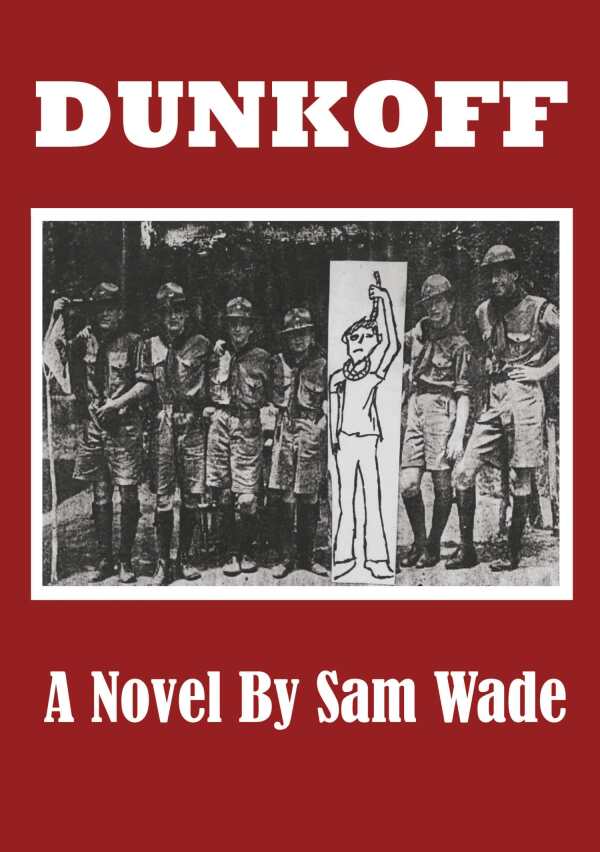
Dunkoff
With elements of pure entertainment and a hint of an obscured message about the complicated realities youth, Dunkoff is a fun, fast novel.
With humor and tragedy, Sam Wade’s novel Dunkoff follows the exploits of an angsty teenager with big dreams.
At twelve years old, Harry Dunkoff is already jaded with school, his peers, and his family. He uses the excuse of having to go to the bathroom to get out of class and daydream about running away to Los Angeles to be like Axl Rose.
Four years later, at sixteen, Dunkoff decides that he’s had enough. He drops out of school to become a famous writer like William S. Burroughs or Hunter S. Thompson. His parents are dismayed by his drug use and refusal to get a job or a GED. They send him to a camp for troubled teenagers, from which he escapes. Next, Dunkoff roams the country, with stops in Miami and Boston, wheeling and dealing in the hopes of making it big. More like a bum than like Jack Kerouac, Dunkoff crashes at halfway houses and sorority houses for months before he gets sick of being swindled and faces reality.
Driven by angst, Harry Dunkoff is a quick-witted pathological liar of a hero whose obsession with Don Quixote spurs his creative endeavors. His addictive personality and distaste for stability inhibit his literary success, however. His constant back and forth between the dominance of his temptations versus his hidden ambitions is the story’s major source of tension. But most people prove more interested in hearing about his experiences on the road than they are in his literature, so he makes up adventures to tell others.
As the lies pile on, Dunkoff strays further from his own truths. By the end, he’s out of money and has nowhere to go, resulting in a personal turning point. It’s a stifled and abrupt ending compared to the adventures that preceded it, and Dunkoff’s lack of growth hints at a bleak future for the boy.
Still, the book is short and fast-paced, propelled by Dunkoff’s matter-of-fact voice. The youthful, hope-laced prose competes with the harsh realities of addiction and homelessness that are filtered through Dunkoff’s naïve narrative lens. Violence, theft, and emotional betrayals are rendered as facts of life by Dunkoff’s deadpan tone. And physical descriptions of characters and settings, with comparisons to 1990s pop culture icons and vibrant, sarcastic word choices, bolster Dunkoff’s snarky yet attentive attitude to the unstable landscape through which he treks.
Brimming with the misdirected hope of youth, Dunkoff is an entertaining novel about a boy searching for a place where he can belong.
Reviewed by
Aimee Jodoin
Disclosure: This article is not an endorsement, but a review. The publisher of this book provided free copies of the book and paid a small fee to have their book reviewed by a professional reviewer. Foreword Reviews and Clarion Reviews make no guarantee that the publisher will receive a positive review. Foreword Magazine, Inc. is disclosing this in accordance with the Federal Trade Commission’s 16 CFR, Part 255.
